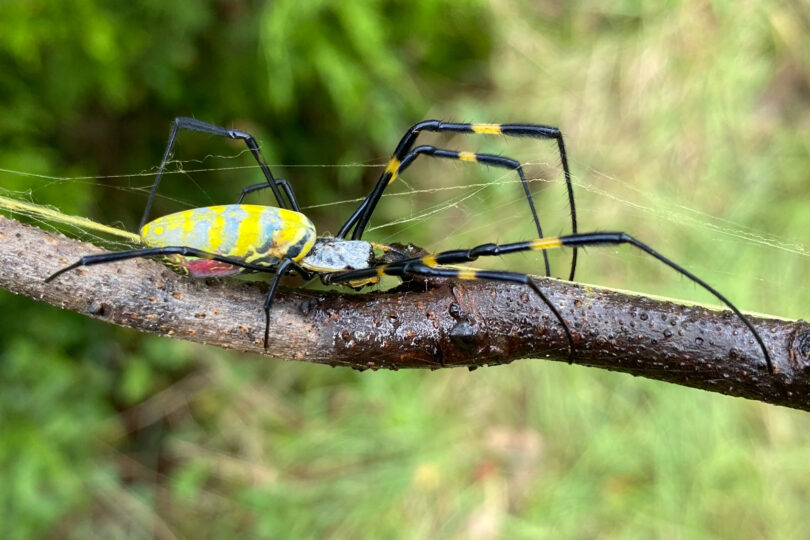The Joro spider is big. It doesn’t appear to have many natural predators in the United States. It is venomous. It can withstand colder temperatures that would kill other spiders. And, oh, it also has the ability to ‘parachute’ its newly hatched spider into other locations to help spread and breed.
Videos by Rare
It is also colonizing wide swaths of America.
If you are looking for good news, it may be that its venom doesn’t impact humans… it is naturally attracted to eating brown stink bugs… and — apart from being scary looking — does not impact the natural echo system.
“People should try to learn to live with them,” Andy Davis, a research scientist at the University of Georgia’s Odum School of Ecology, said in a news release.
From the research paper, a sobering paragraph explains what is happening and why it (likely) can not be slowed.
The Joro spider first arrived stateside around 2013 and has since spread across the state and Southeast. But new research from the University of Georgia suggests the invasive arachnids could spread through most of the Eastern Seaboard of the U.S.
Perfect.
“It looks like the Joros could probably survive throughout most of the Eastern Seaboard here, which is pretty sobering,” Davis added.
The researchers indicate that the spider first arrived about 80 miles north of Atlanta, and likely in a shipping container from Asia. In some parts of Georgia, thousands of the spiders have been reported, weaving giant, three-dimensional webs that are a golden color and have been reported as deep as 10 feet.
The Joro is widespread in Japan, China and Korea.
Additional information on the bad news is that it is also able to use a “ballooning” technique where newly hatched spiders can ‘parachute’ into new areas to continue the spread. And, yes, as mentioned above, the Joro has been measured at double the metabolism of the golden silk spider — with a 77% higher heart rate, allowing it to survive freezing temperatures.
“Joro spiders present us with excellent opportunities to suppress pests naturally, without chemicals,” University of Georgia entomologist Nancy Hinkle said. “I’m trying to convince people that having zillions of large spiders and their webs around is a good thing.”
Good luck.
You can read more, if you do not want to sleep tonight, from the University of Georgia.



